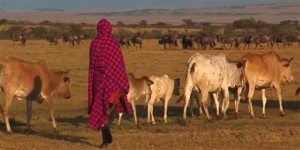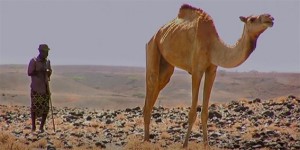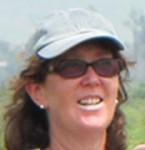I joined the Open University in October 2015 as a postgraduate researcher. Based in The Institute of Educational Technology my doctoral research is supervised by Richard Holliman, Eileen Scanlon and Patricia Murphy. My aim is to specialize in science communications for development.
To this end, I have been a science communications consultant across Africa and Asia, North America and the UK for many years, developing knowledge, skills and expertise that I’m planning to integrate into my postgraduate research.
From 2006, I headed the film unit at the International Livestock Research Institute based in Nairobi Kenya, working as part of international science research projects for Non-governmental organisations, charities and governments.
My documentaries have summarized scientific research into agriculture and development for audiences ranging from funders and policy makers, to farmers and other technology users, and members of the wider public.

Counting in a Disappearing Land. Click link to view film. Length: 11 minutes.
The projects I produced videos for focused on issues crucial for poverty alleviation, such as climate change, the sustainability of natural resources, livestock and crop genetics, and banking and insurance for remote regions.

Development of the World’s First Insurance for African Pastoralist Herders. Click link to view film. Length: 12 minutes.
I also have experience in teaching and community education, and in writing and illustrating children’s books for developing world communities.
From 2014 I have worked as an independent radio producer in the UK, commenting on issues around science for development for clients including BBC World Service and SciDevNet.
Research interests
Many of the international science research institutions responsible for producing data and technologies for development, struggle to tell people outside their scientific communities about what they are doing.
In my experience these institutes want to know the best way to approach different publics, but lack data about how people acquire knowledge of science, especially in relation to modern lifestyles.
Selection of my documentaries reflecting research issues
During my MSc studies, conducted at the Science Communication Unit at Imperial College, my research explored the changing perceptions of wild animals in modern societies.
My results implied that attitudes to animals vary greatly in different regions, yet few of the people interviewed could articulate why or when their opinions about wild creatures arose. The implication was that attitudes are acquired informally within social contexts.
My current research, therefore, builds on the suggestion that animal attitudes might be a useful way to monitor science knowledge acquisition in different countries and societies.
Postgraduate research
Assessing children’s stories via a variety of media about animals for food, could possibly be seen as one way to record current animal opinions and attitudes. But there is less understanding about which media children from different cultures use to access these stories, or how different factors affect the messages they receive.
During my postgraduate research I will look at the stories available to children outside school in a variety of areas, and begin to assess this informal consumption.
Wider relevance
With more information about how children source basic scientific information, might it be possible to understand how citizens across a range of cultural contexts interpret, contextrualise and respond to the increasing complexities of science, to disseminate information relevant to the sciences (including local knowledges) for different causes, and to better support communities that currently lack access to information?
Contact details
- Email: [email protected]
- Phone: +441908 332735
- Twitter: @Claremedia13
- Web: Clare Kemp



